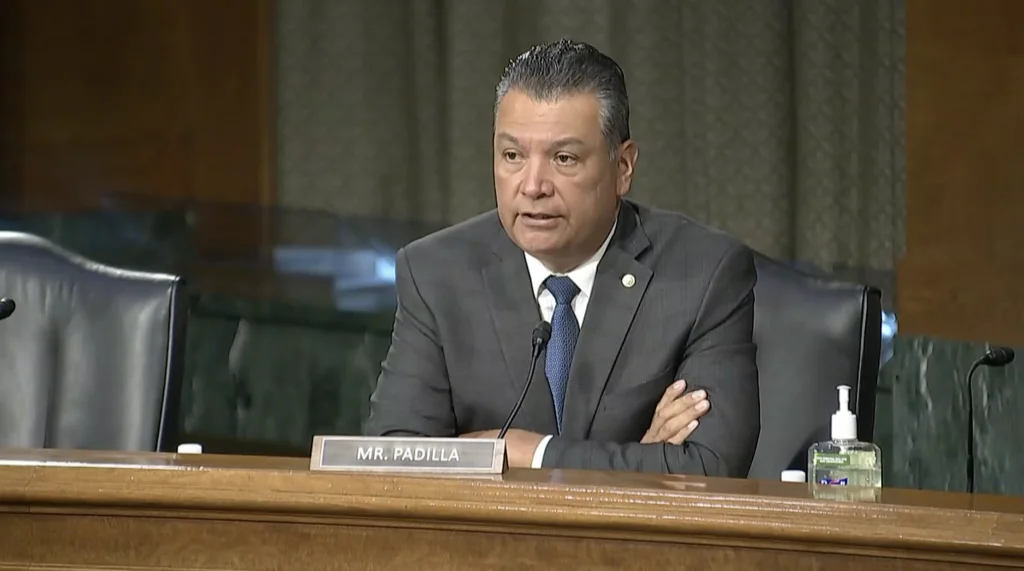Padilla Questions Panel on Implications of Life in Post-Roe America

WASHINGTON, D.C. — U.S. Senator Alex Padilla (D-Calif.), a member of the Senate Judiciary Committee, questioned witnesses today during a hearing titled “A Post-Roe America: The Legal Consequences of the Dobbs Decision.” The hearing follows the recent Dobbs v. Jackson Women’s Health Organization decision from the Supreme Court, which overturned the constitutional right to an abortion in the United States. Padilla focused his questioning on the impacts the decision will have on reproductive health equity and what this decision means for other constitutionally protected rights.
WATCH: View video of Padilla’s questioning
During the hearing, Padilla touched on the need for equity in executive orders seeking to protect access to reproductive health care nationwide. He then questioned UC Berkeley Law Professor Bridges, who discussed how the Dobbs decision will negatively impact the maternal mortality rate for Black women, who already have a higher mortality rate during pregnancy. Padilla also spoke with Illinois Lt. Gov. Stratton about how abortion restrictions have long-lasting impacts, including increased risk of intimate partner violence and long-term poverty and financial strain.
Professor Bridges also discussed how overturning Roe v. Wade opens the door for other constitutional rights, like marriage equality, access to contraception, and other similar fundamental rights established by the Court to be revisited and reversed.
Key Excerpts:
- PADILLA: As we’ve discussed here, at the hearing today, people of color, economically disadvantaged families, immigrants, and members of tribal communities have faced significant barriers to receiving adequate health care even before Roe was overturned, and those barriers will only further increase. Now, in a country where the black maternal mortality rate is triple that of white women, we should not be forcing anyone to carry pregnancies to turn that they wish to terminate for health or other reasons. Period.
- BRIDGES: Black people don’t have a gene that causes us just to die. These are social causes of this these disparities in maternal mortality and morbidity, meaning that we as a society have not invested the resources that can make pregnancy, childbirth and the postpartum period safe for Black people.
- STRATTON: I want to talk about some of the other long-lasting restrictions that we will see from the long-lasting impacts of the restrictions or bans to abortion. This includes an increased risk of intimate partner violence. We know that for pregnant people, intimate partner violence, and in fact, it’s one of the leading causes of homicide. Homicide is one of the leading causes of death for those for pregnant women. We know that it will be increased health problems, regardless of not just maternal mortality, but also other health issues that can exist far beyond that point of giving birth, as well as the financial and economic risks the strain, increased evictions, increased poverty, living in long term poverty, being in debt.
- PADILLA: Justice Alito wrote that Americans need not worry about the broader implications of the right-wing majority’s decision to overturn Roe, he said it’s limited to this. Yet, in his concurrence to Justice Alito, those opinion Justice Thomas makes it explicitly clear that those other rights are not actually secure.
- BRIDGES: Absolutely. The courts protestations that it is not at all touching those cases, rings, very hollow. The logic of the decision, the methodology of constitutional interpretation, leave all of those decisions that Justice Thomas himself highlighted, open to revisiting and reversal.
Padilla is a champion for reproductive rights and is a cosponsor of the Women’s Health Protection Act, which would guarantee access and the right to provide abortion services in the United States. Padilla also successfully secured commitments from SafeGraph and Placer.ai, two data brokers, to permanently stop selling the location data of people who visit abortion clinics. This week, he also urged President Biden to prioritize health equity for people of color, and low-income, immigrant, and tribal communities in any executive actions to address the recent Dobbs decision.
For more information on the hearing, click here.
###